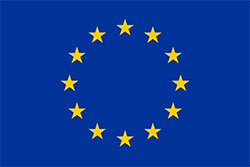Diego de Covarrubias (1512-1577) is one of the most relevant thinkers of the School of Salamanca. He was successively professor of Canon Law, judge of the Chancery of Granada, bishop of Ciudad Rodrigo and Segovia, Synodal Father at the Council of Trent and president of the Council of Castile[1]. His objective was to unite law, theology and economics, becoming a reference in the thinking of his time. Covarrubias is a perfect synthesis of the ideas of this School, since Francisco de Vitoria and Domingo de Soto had a vital influence on his thought, and the latter on later ones, such as Juan de Mariana.
From his application of ethics and justice in economic affairs, Covarrubias firmly believed in the importance of fair trade and the responsibility of individuals and institutions to act with integrity in their transactions. His vision emphasized the need for investors and entrepreneurs to consider not only the financial benefits, but also the social and human impact of their decisions.
His main economic contribution was to pioneer the formulation of the subjective theory of value[2] in his work, a contribution that was later inherited by the Austrian School, mainly by the German economist Carl Menger. The entire free market economy revolves around this idea[3]. Covarrubias affirms that “the value of a thing does not depend on its objective nature but on the subjective estimation of men, even if such estimation is crazy“[4]. Thus, he gave the example of wheat: “in the Indies wheat is valued more than in Spain because there, men value it more, and this in spite of the fact that the nature of wheat is the same in both places“[5]. Therefore, the great contribution of this thinker is to have anticipated concepts of economic liberalism such as market pricing (supply and demand, or in the words of the time “free competition”)[6]. This notion stands in opposition to the objective theory of value that would later form the basis of the Marxist theory of surplus value and much of modern economic thought.
Moreover, he was a precursor of Juan de Mariana’s thinking on the value of currency and devaluation, a theory that we exposed a few months ago to the Jesuit thinker. Covarrubias was an advocate of the thesis that manipulating the currency meant an artificial alteration that did not respect the natural dynamics of the market[7].
Like all these Spanish theorists, Covarrubias believed that individual owners of goods had inviolable rights over them[8]. A defense of private property that is fully in line with the Social Doctrine of the Church and ultimately with Natural Law. Finally, Diego de Covarrubias not only contributed to economics, but he is also a very relevant thinker in other fields, mainly legal. In this sense, he defended the causes of just war, the titles of conquest or the concept of the law of nations, being considered one of the greatest experts in Roman law[9].
In this way, the thought of Diego de Covarrubias once again highlights the importance of morality in economics, or more specifically, economics as a moral science. Thus, Covarrubias’ work is relevant to the present day insofar as it bears witness to the importance of applying ethics to economic activity.
[1] Gómez Rivas, León, Don Diego de Covarrubias, 2022, Unión Editorial, p.35.
[2] Huerta de Soto, Jesús, Estudios de Economía Política, 2020, Unión Editorial, p.45.
[3] Ibid, p.153
[4] De Covarrubias, Diego, Omnia Opera, «Veterum Collatio Numismatum, cum his, quae modo expenduntur, publica, et Regia authoritate perpensa», 1604, pp. 669-710.
[5] Ibid.
[6] Gómez Rivas, León, Campeones de la Libertad, 2019, Unión Editorial, p.150
[7] Ibid.
[8] Rockwell, Llewellyn, The True Founders of Economics: The School of Salamanca, 2018, Mises Institute. Disponible en internet: https://mises.org/wire/true-founders-economics-school-salamanca
[9] Rothbard, Murray N, Historia del Pensamiento Económico, 2013, Unión Editorial, p.144.








